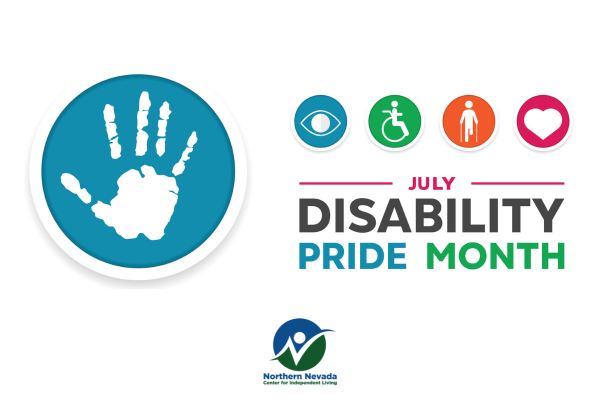Service dogs are not just furry companions; they’re highly trained partners that provide invaluable support for people with disabilities. These remarkable animals have the ability to transform lives by enhancing independence, confidence and overall well-being.
The Multifaceted Assistance of Service Dogs
Service dogs are trained to perform a wide range of tasks tailored to the specific needs of their handlers. Here are just some of the ways in which these amazing animals can make a difference:

- Mobility Assistance: Service dogs can assist individuals with mobility impairments by retrieving dropped items, opening doors and helping with balance and stability, to name a few. For someone using a wheelchair, a service dog can be a lifesaver when it comes to reaching items on high shelves or even pushing a button at a crosswalk.
- Guide Dogs: Blind or visually impaired people can greatly benefit from guide dogs that are trained to navigate obstacles, avoid dangers and guide their handlers safely through various environments.
- Alerting to Medical Conditions: Service dogs are trained to detect changes in their handler’s medical conditions, such as low blood sugar levels for people with diabetes or seizures in those with epilepsy. When a medical issue arises, the dog can alert their handler or seek help, potentially preventing a medical emergency.
- Psychiatric Assistance: Service dogs can provide support for people with psychiatric conditions such as post-traumatic stress disorder (PTSD), anxiety disorders or depression. They can offer comfort, emotional grounding and even interrupt harmful behaviors, providing a sense of security and stability.
- Autism Assistance: For people on the spectrum, service dogs can offer emotional support, companionship and safety. They can help reduce anxiety and assist with sensory issues, providing a calming presence in challenging situations.
- Hearing Dogs: People with hearing impairments can benefit from hearing dogs that are trained to alert them to important sounds, such as doorbells, alarms or a ringing phone, enhancing communication and situational awareness.
- Social Interaction: Service dogs also play a crucial role in breaking down social barriers. They often serve as conversation starters and help their handlers connect with others, reducing feelings of isolation and fostering a sense of belonging.

When You See a Service Animal
Service animals play a crucial role in the lives of people with disabilities, and it’s important to understand how to interact with them appropriately:
- Recognize their purpose: Understand that service animals are not pets; they’re working animals trained to perform specific tasks to assist individuals with disabilities. Their primary focus is on their handler’s needs.
- Service dogs are different from therapy or
- Ask for permission: Always ask the handler for permission before approaching or interacting with their service animal. Approaching a service animal without permission can distract them from their duties.
- Avoid distractions: Do not attempt to pet, play with, call, feed or otherwise distract the service animal when it’s working. Some service animals may have specific rules regarding touch, which the handler will communicate if necessary. And distractions can jeopardize the handler’s safety and independence.
- Keep a safe distance: Maintain a safe distance from the service animal and avoid sudden movements or loud noises that could startle them. It’s important not to interfere with the animal’s concentration.
- Respect the handler’s instructions: Follow any instructions given by the handler regarding how to interact with their service animal. Handlers are typically the best judges of what is appropriate for their specific situation.
- Be patient: Service animals and their handlers may need extra time or space to navigate public places or perform tasks. Be understanding of any delays or inconveniences that may arise.
- Accommodate allergies or fears: If you have allergies or a fear of dogs, it’s your responsibility to make any necessary accommodations while respecting the rights of the service animal and its handler.
- Do not discriminate: Treat people with service animals with the same respect and courtesy as you would anyone else. Do not discriminate against them or ask intrusive questions about their disability.
- Educate yourself: It can be helpful to educate yourself about the laws and regulations surrounding service animals in your region, as these laws may vary. In the United States, for example, the ADA protects the rights of people with disabilities and their service animals.
Making it Official
It’s important to distinguish between service dogs and pets, or emotional support animals. Service dogs undergo rigorous training and must meet specific criteria to be officially recognized as such.
Here’s how you can determine if a service dog is official:
- Trained for a Specific Disability: A service dog is trained to perform tasks directly related to the handler’s disability. These tasks should help the individual live more independently and improve their quality of life.
- Obedience and Behavior: Service dogs are well-behaved, obedient and have excellent manners. They are trained to remain calm and focused in various environments, even in the face of distractions.
- Certification and Documentation: While there is no official certification or registration required for service dogs in the United States, many organizations provide identification cards, vests or certificates for service dogs. However, these are not legally required, and there is no centralized registry. Be cautious of websites or services that claim to provide “official” certifications for a fee, as these may not be legitimate.
- Public Access Rights: Under the Americans with Disabilities Act (ADA), service dogs are allowed access to public places, including restaurants, stores and public transportation. They are not considered pets, and should not be denied entry based on their presence. However, they should be well-behaved and under control at all times.
Service Dogs vs Therapy Dogs
Therapy dogs are trained to provide emotional support and comfort to people in hospitals, nursing homes, schools and other therapeutic settings. They interact with individuals to alleviate stress, boost morale and promote a sense of well-being.
Therapy dogs do not have the same legal rights as service dogs and typically require permission from the facility they are visiting to enter.
Service dogs receive more privileges than therapy dogs, primarily due to their crucial role in supporting individuals with disabilities in their daily lives. These dogs are essential for their handlers’ safety and independence, making it necessary for them to have access to various public spaces to carry out their duties effectively. Therapy dogs, while valuable for emotional support, do not have the same level of training and responsibility, hence the differences in privileges.
Remember that the handler and their service animal are a team, and the animal is an important part of the handler’s life. By treating service animals and their handlers with respect, you help ensure that individuals with disabilities can fully participate in society and maintain their independence.




